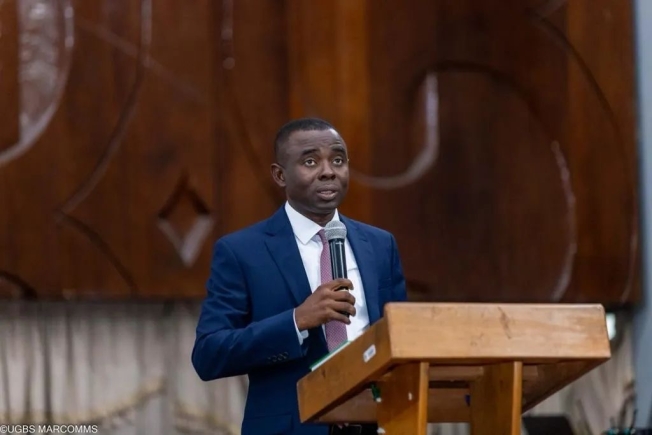A Professor of Finance at the University of Ghana Business School, Professor Joshua Yindenaba Abor, has called for an efficient management of the country’s natural resources to help fight climate change.
He said the non-renewable natural resources were wasting assets with finite lifespans and, therefore, revenue generated from their exploitation must be invested to drive inclusive growth and sustainable development.
“The extractive sector is not properly integrated with the rest of the economy. We only benefit from such sectors through export revenue.
“If the export revenue does not come to support the financial market, then we are not really benefitting from it,” he stated.
He, therefore, called for a reassessment of investment and stability agreements surrounding natural resources.
He said the review must ensure that these agreements promote financial development and inclusiveness.
Prof. Abor said this when he delivered an inaugural lecture at the Ghana Academy of Arts and Sciences.
The lecture was on the theme: “Rethinking Development Finance for Inclusive Green Finance; Are there Financial Stability Implications?”
He said there seems to be a disconnect between the extractive sector and the broader economy in many resource-rich nations, and Ghana is no exception.
Commenting on the role of Development Finance Institutions (DFIs), he said their potential to catalyse private investment in climate action and sustainable development has so far been positive.
He said DFIs have played a pivotal and critical role in providing investments necessary for climate action and a sustainable economy.
“They provide long-term finance to promote economic growth and sustainable development.
“DFI’s leverage financial resources from capital markets, owing to their strong credit ratings, which enables them to provide long-term capital to support development projects,” he said.
Sustainable financing
Prof. Abor said the importance of ensuring sustainable financing for climate action had become very topical in the policy space and countries across the globe have all recognised the need for immediate climate action.
He said a lot of countries have so far ratified the Paris Agreement on climate change. However, efforts to achieve global climate goals are inadequate.
“Greenhouse emissions are increasing, creating concerns about slow economic growth in the presence of climate policies,” he stated.
He said taking climate action does not only suggest good stewardship in environmental sustainability but is also seen as a sound economic policy, considering that the cost associated with inaction may be greater than the cost of taking immediate action.
He added that focusing on smart green agriculture, clean energy and green infrastructure comes with unique benefits that could spur economic growth.
Most vulnerable
Prof. Abor pointed out that developing countries were mostly vulnerable to the impact of climate change and if appropriate measures are not taken, over 100 million people could be rendered poor by 2030.
He said climate change may also cause over 143 million people in developing countries to migrate.
“Therefore, making important decisions such as transitioning towards climate-compatible development paths requires countries to implement inclusive development
strategies supported by development programmes that consider climate change,” he said.
He said climate change risks and financial inclusion were directly linked, noting that four out of every five bank adult population in the world, representing more than one billion people, live in the most climate-vulnerable areas.
Also, about 58 per cent of the adult population in the most climate-vulnerable countries are not financially resilient, compared to 25 per cent in less climate-vulnerable countries.
Prof. Abor said financial investments and sound resources are, therefore, required to deal with the effect of climate change, reducing emissions, promoting adaptation and building resilience.
“The benefits that flow from such investments are enormous, exceeding any related cost and ultimately helping to build a sustainable economy,” he said.
